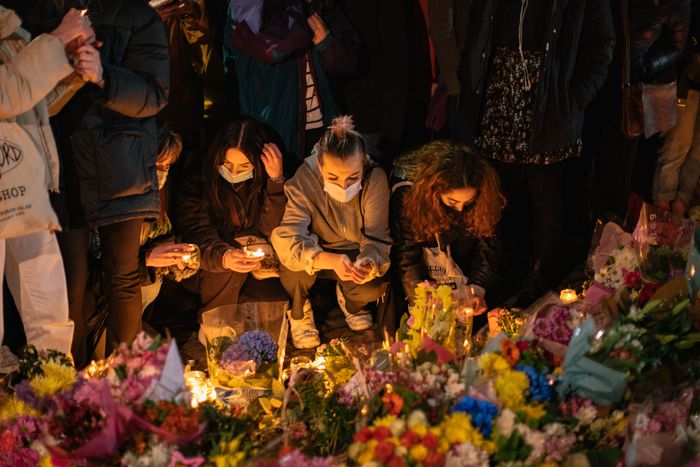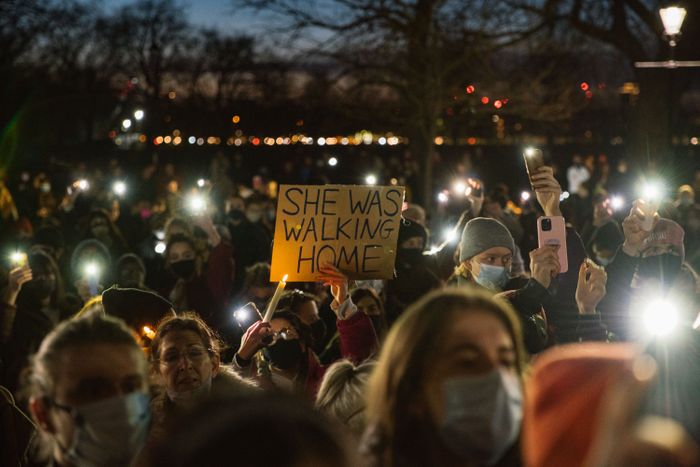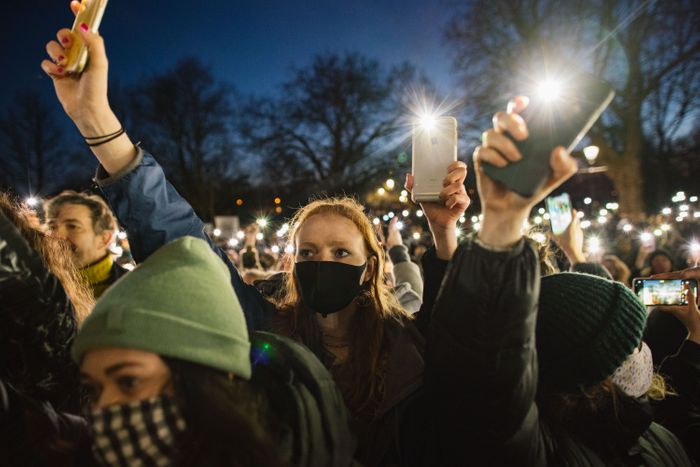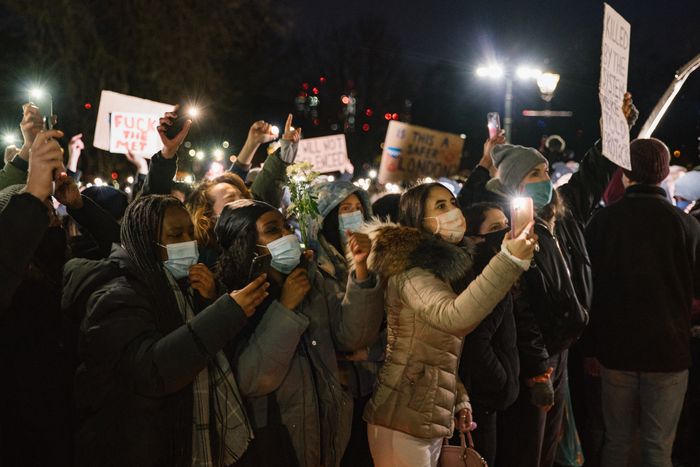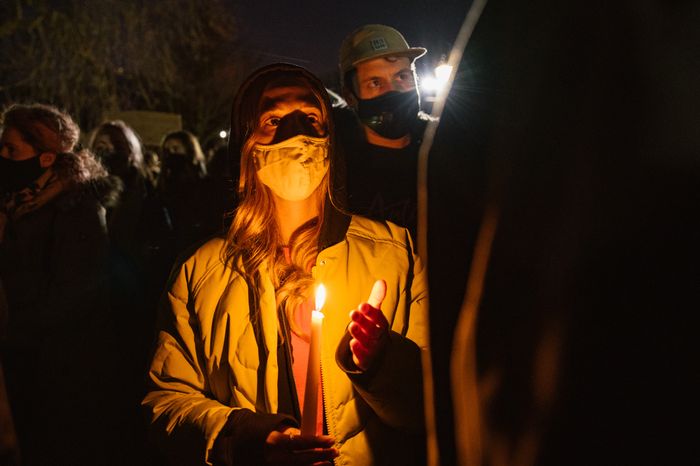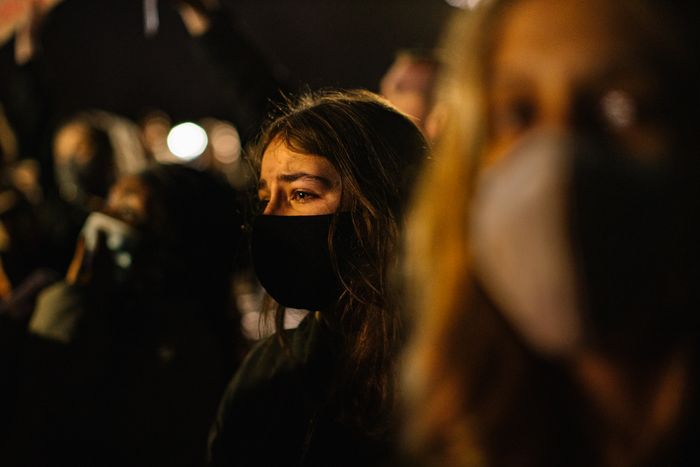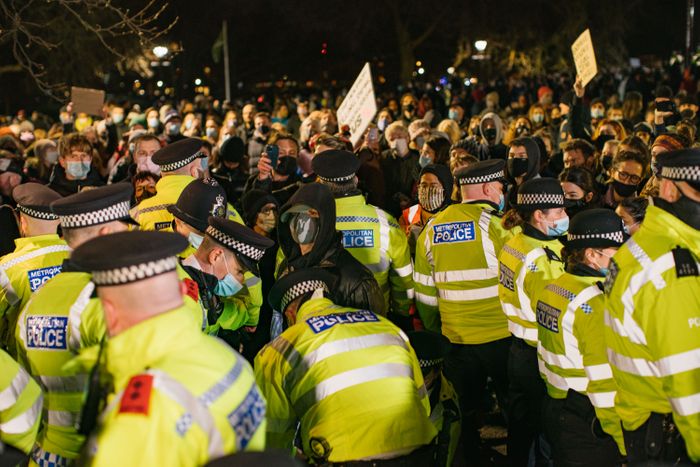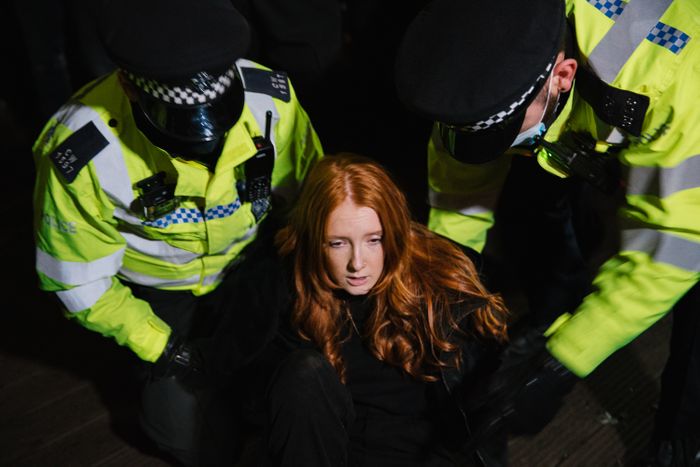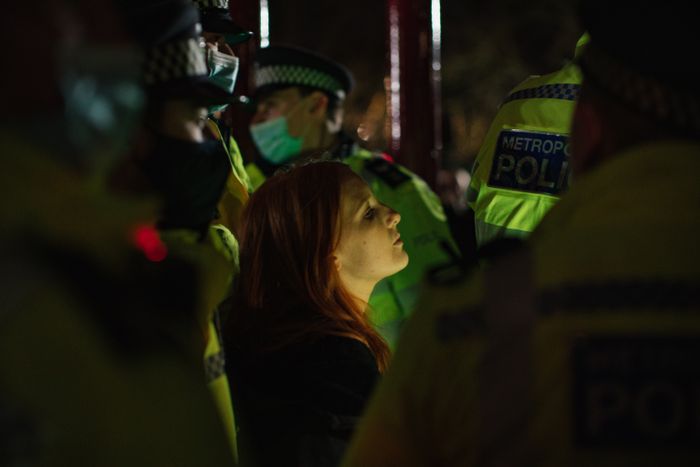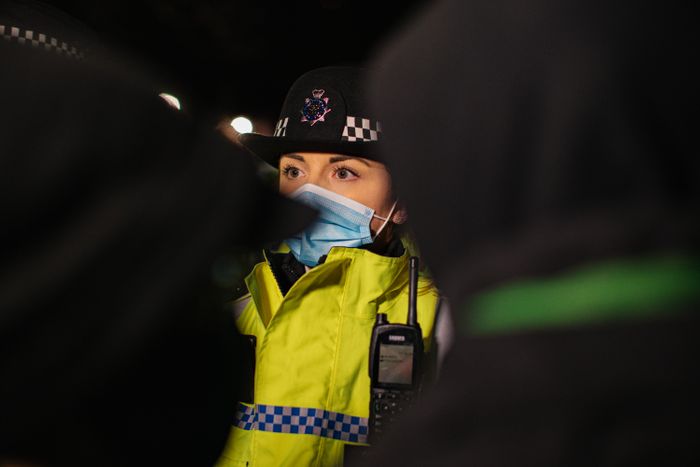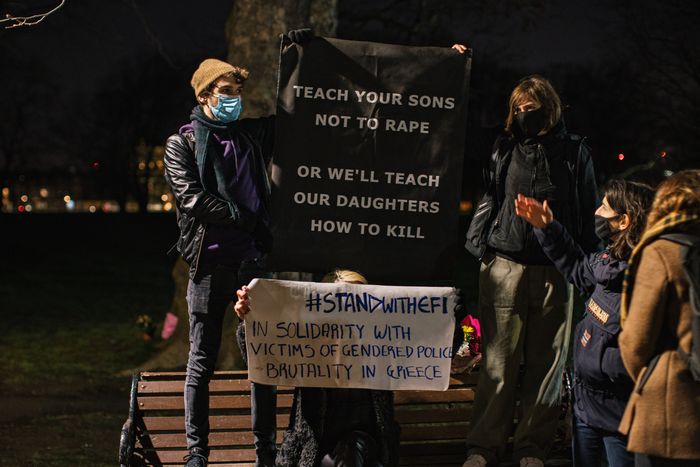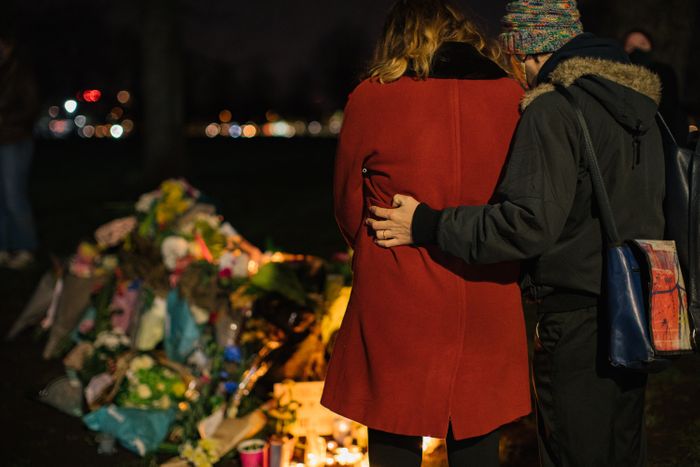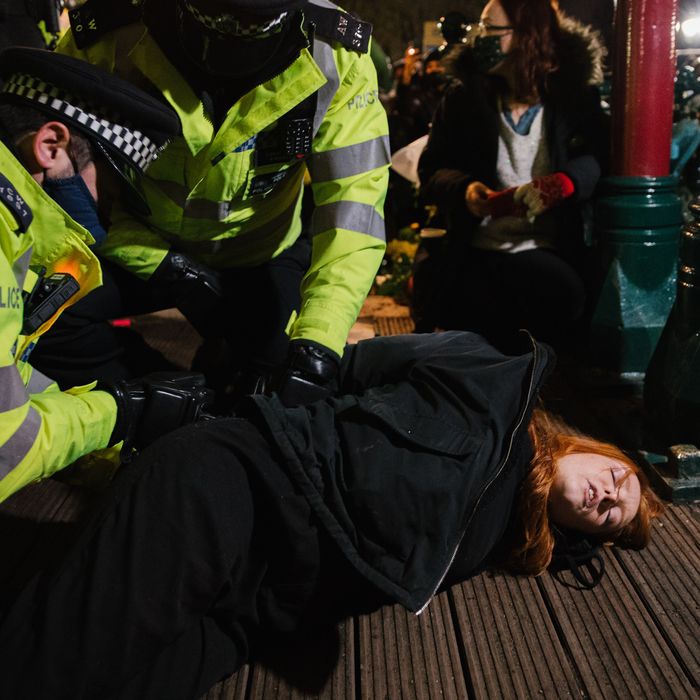
The vigil was beautiful before the police showed up. Thousands of us tramped over mulchy grass under a sky that was streaked with yellow and pink. A surveillance helicopter buzzed ominously overhead. We were mostly women, and a few men too, gathered together on Clapham Common, the spot where 33-year-old Sarah Everard went missing on March 3 while walking home from seeing a friend. Her body was discovered in the woods a week later. She had to be identified by her dental records. A Metropolitan Police officer has been charged with her murder and kidnapping.
My friends and I have cried for Everard all week. It wasn’t just those of us in the U.K. As women across the world processed the news of Everard’s disappearance, and then her death, we began to share stories of violence, harassment, assault, and abuse. Women spoke about how fatiguing it is to live in a perpetual state of hypervigilance and how that fear corrodes your body, mind, and soul. They talked about experiences that could have turned out much worse: the hand reaching for their ass on a swaying subway train, the masturbator they switched parks to avoid, the men who follow them home while they grip their keys tightly in sweaty hands, ready to run.
For my friends and I who live in London, there’s been an additional layer of horror and recognition. We’ve all cut through that same park at night — Everard was reportedly kidnapped around 9:30 p.m. while on the phone with her boyfriend. How many of us have called a friend as we walked, thinking it might make us safer? I used to live in her neighborhood. When the first pictures of Everard showed up on my timeline, I was convinced that I knew her. Her face seemed so familiar. I pulled up her Facebook page and realized we’d gone to Glastonbury Festival the same year. Had we smiled conspiratorially at each other in a toilet queue or made small talk at a bar? When her body was discovered, I wept.
The bandstand, the center of the event, was garlanded with flowers. All the supermarkets nearby had sold out. One card read, “Dear Sarah, we are so sorry. You did nothing wrong.” Near me, a mother and her young daughter stood quietly. Tears streamed down the mother’s face. We held a minute’s silence. The crowd was respectful and peaceful, although we were technically there illegally. Organizers had filed an emergency legal petition to hold the event in a COVID-safe way, but the Metropolitan Police refused to engage with them. After the initial organizers moved the event online, the direct-action feminist protest group Sisters Uncut stepped forward and announced the Clapham Common vigil would be going ahead anyway. “We will not be told what to do by violent men,” the group said.
An organizer shouted a speech, and we relayed it for the people in the back. “It is our duty to fight for our freedom,” the organizer said, quoting Assata Shakur. “It is our duty to win. We must love each other and support each other. We have nothing to lose but our chains.”
We repeated her words for the people in the back. I started to cry. This week has resurfaced buried trauma like an abscess in my mouth. I keep thinking about an experience I had when I was 18. I was at a festival, it was dark, and I couldn’t find my tent. A man in a high-visibility jacket noticed that I was lost. I thought he was a security guard because of the jacket, so I let him help me. We found my tent, and when I turned to thank him, he tried to pull me into it, demanding a blow job. I screamed, some people came running, and he melted away into the night. Afterward, I crawled into a tent with some friends and cried myself to sleep. The next morning, I woke up and never thought about it again — until 13 years later, when Everard disappeared.
The officer charged with Everard’s murder, Wayne Couzens, was accused of indecent exposure three days before her disappearance, but he was allowed to continue doing his job. One working theory is that he may have used his police ID to lure her into his car that night — which would make this not just a story of random, deadly male violence but of an officer abusing his power, assuming he could get away with it because he was used to acting with impunity.
At the vigil, the same police force that employed the man accused of killing Everard now prevented women from grieving for her. Night had fallen, and the organizers were halfway through their speeches when the police muscled in. They were mostly men, big, burly figures, marching in formation toward the bandstand. The atmosphere became strained and edgy. Officers surrounded the speakers, blocking our view of them. In the crowd around me, the pain in women’s voices was clear. “Who do you protect?” they shouted. “Who do you serve?” We started to chant “Let her speak!” and “Police go home!,” but they ignored us. Police dragged away the organizers — there were about 15 of them — in some cases ripping them bodily from the ground. We raised our phone lights in the air for Everard. A wall of officers faced us with arms crossed, faces stony, implacable.
Following Everard’s death, it looks likely that the government will rush through a new law, most likely making misogyny a hate crime. Critics say it’s all but pointless. We barely even enforce the existing laws we have. Rape convictions are at an all-time low. Two women a week are killed by current and former partners in the U.K. Last month, a man was cleared of murdering his wife after strangling her to death. Last week, a judge cleared a man of assault after deciding his accuser was a fantasist who’d read too many Me Too articles. On and on it goes, the relentless cycle of violence against women, and the men who behave with impunity, and the men who protect them.
A week earlier, male football fans illegally celebrating their team’s win were given an escort of honor by police. Here, officers pinned grieving women to the ground and threw them around like rag dolls. Police trampled on the flowers left for Everard. Afterward, in response to a national outcry, the Metropolitan Police released a statement, saying, “We absolutely did not want to be in a position where enforcement action was necessary. But we were placed in this position because of the overriding need to protect people’s safety.” The subtext felt clear: Look what you made us do.
The vigil was beautiful until the police came and dragged us apart. Surrounded by grieving women, I felt sane for the first time all week. It felt powerful to affirm Everard’s humanity, to demand justice, to share our sadness and fury. Everard deserved better than this. Those remembering her deserved better than this. We all deserve better than this.



